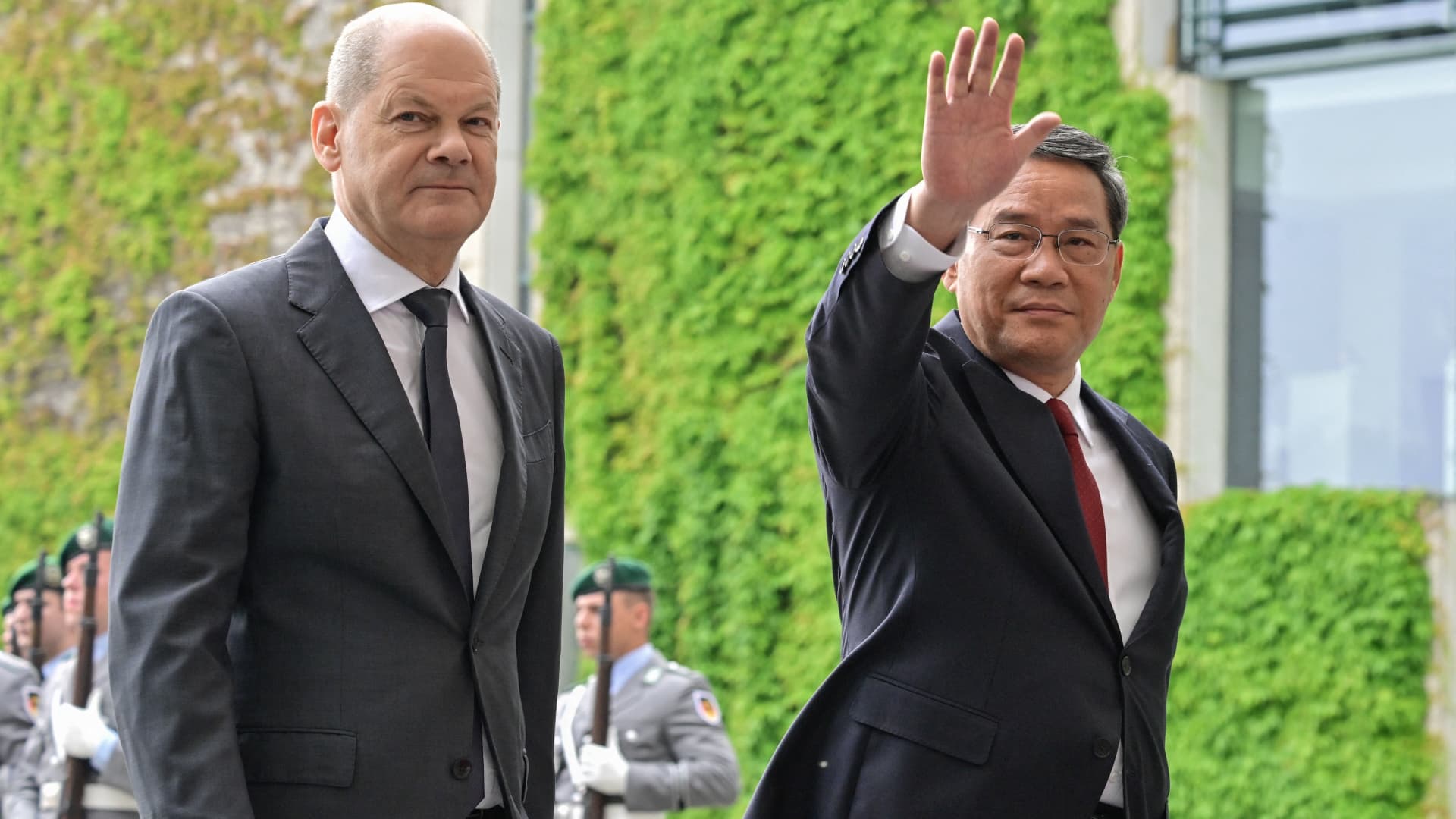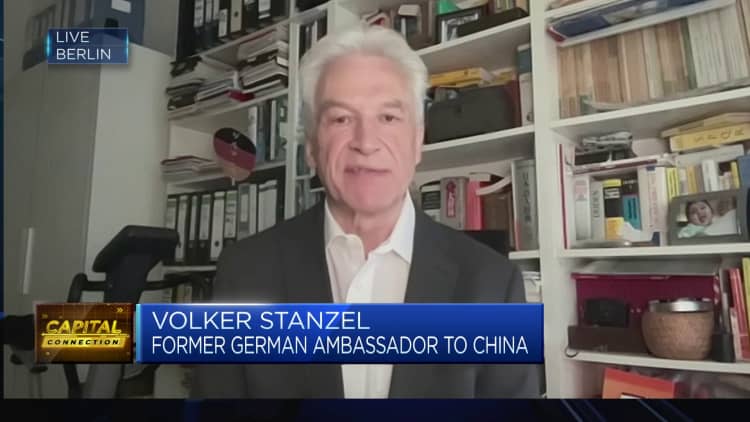
China’s Premier Li Qiang waves as he walks back with German Chancellor Olaf Scholz.
John Macdougall | Afp | Getty Images
Europe is charting a new way forward for its relations with China, but officials in the region say they are wary about the risk of retaliation if they get it wrong.
There has been growing momentum behind the idea of de-risking from China. At a G7 meeting in late May, both the U.S. and Europe agreed to reduce their dependency on Beijing — rather than completely cut ties.
The U.S. has become increasingly more vocal about China’s threat to national security in recent years. Policymakers in Europe, meanwhile, have taken a more cautious approach — aware of how important the Chinese market is for its domestic companies.
A senior EU diplomat, who takes part in the negotiations among the 27 EU capitals but did not want to be named due to the sensitive nature of the issue, told CNBC there is “certainly” awareness that China might retaliate. “But that’s exactly why we need to discuss this,” the same diplomat said.
Another anonymous official, who works at the EU for one of the biggest European economies, also said: “You’ll always have countries fearful of this or that, but it doesn’t mean we shouldn’t do it.”

The whole bloc is figuring out what de-risking from China means. Ursula von der Leyen, president of the European Commission, the executive arm of the EU, described it as raising specific concerns that the EU has with Beijing, including over human rights, but also negotiating fairer competition and market access.
On Tuesday, the commission suggested the EU should review its foreign investment screening policy as well as toughen up its export control regulations. The institution did not say these ideas had been developed because of China directly, but it said the bloc needs to minimize risks “in the context of increased geopolitical tensions and accelerated technological shifts.”
The 27 heads of state from the EU will debate the topic at a summit later this month.
The Chinese embassy in Brussels was not immediately available for comment when contacted by CNBC Thursday.
Lithuania, a Baltic nation in the northeast of Europe, is a good example of a nation aware of potential China retaliation. In 2021, it became the first European country to have a Taiwanese representation office that went under the name Taiwan. Most nations in the region use the name of the city Taipei.
China condemned the move as Beijing considers Taiwan part of its territory, with no right to independently conduct diplomatic relations — therefore not needing its own representation in Lithuania. As a result, China withdrew its ambassador from Lithuania and it imposed a customs block on Lithuanian imports into China.
“For years the West said economic cooperation would persuade dictators to support [a] rules based international order. But all we did was feed their economies while letting them break all the rules. China is betting that we will repeat this mistake. It’s time to try something else,” Gabrielius Landsbergis, Lithuania foreign affairs minister, said on Twitter in April.
Earlier this month, the European Commission called on more EU nations to ban the Chinese telecoms groups Huawei and ZTE.
So far, 10 countries in Europe have banned or restricted the two firms from their 5G networks. They are concerned about risks posed by these two companies to the security of the bloc.
China slammed Europe’s stance and added that the commission had no legal basis to prohibit the telecom giants, according to Reuters.
An EU official, who did not want to be named due to the sensitive nature of the issue, said: “We haven’t seen the same level of retaliation” off the back of that announcement when compared to individual countries.
But the same official said: “If we act under a common framework we will be in a much stronger position when it comes to retaliation.”
European leaders are still figuring out how to reshape relations with what they have described as a more assertive China, but their staff is aware that there is a tricky balance to achieve between reducing dependencies from China while not upsetting it.
